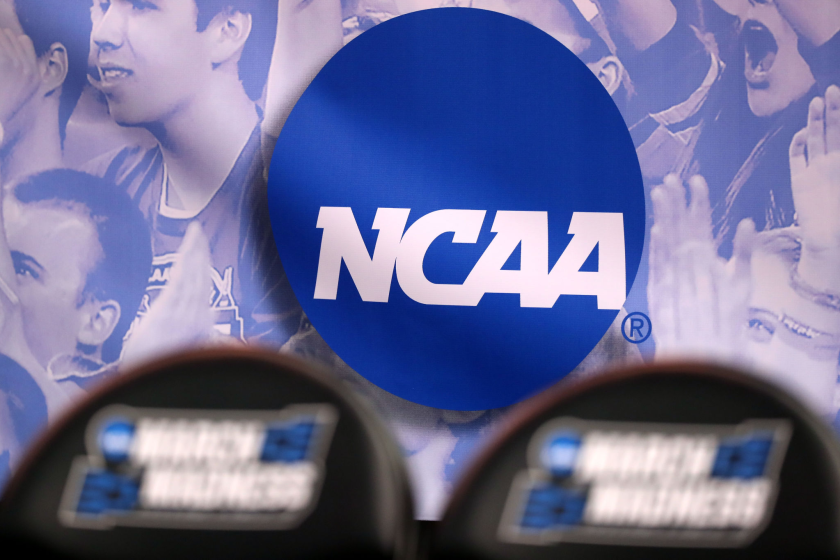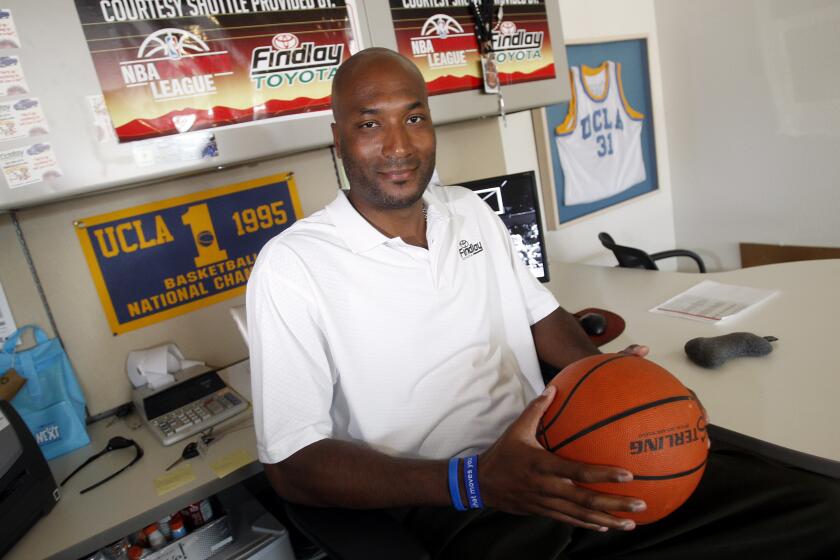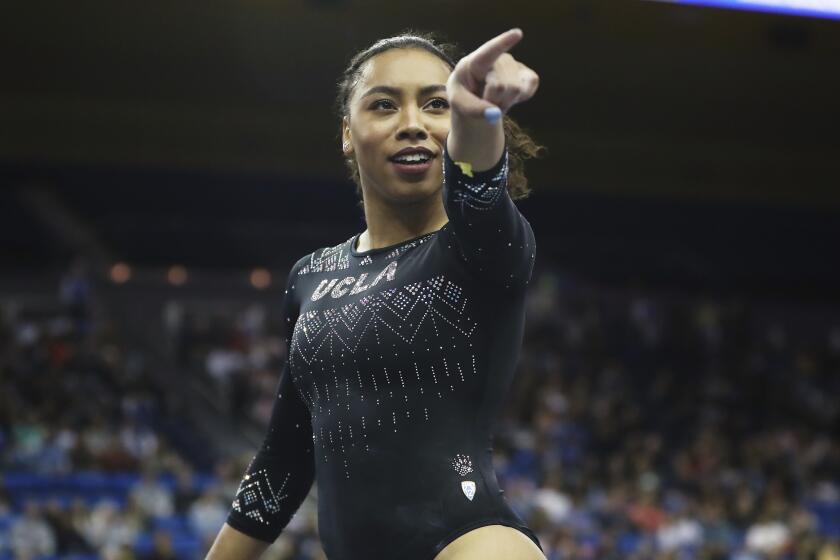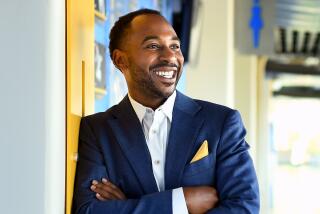How California paved the way for college athletes to cash in big
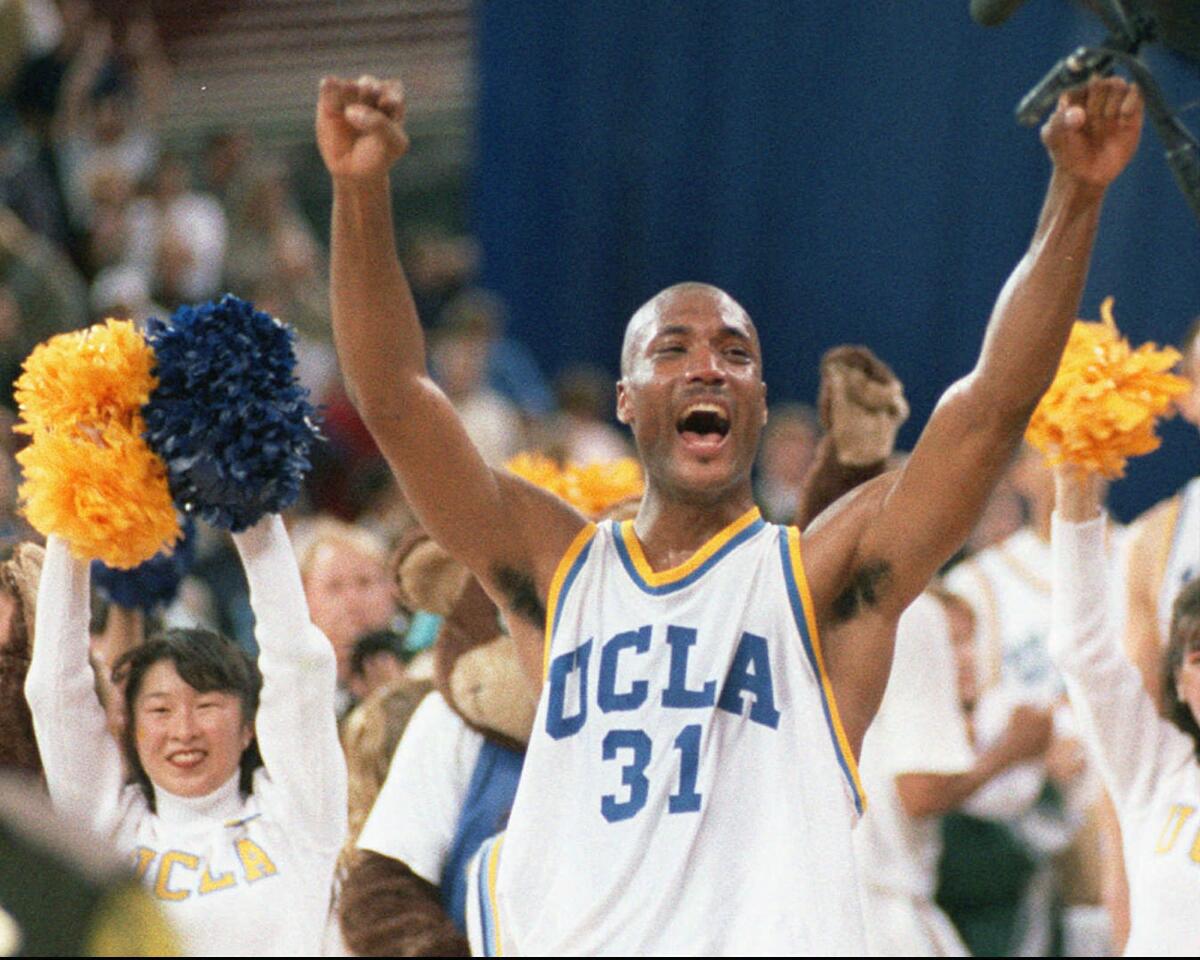
In the days leading up to the 2015 “Big Game,” a Cal alum invited a Stanford grad to lead a discussion on college sports that would go far beyond their football rivalry.
Nancy Skinner did not know that Andy Schwarz’s agreeing to speak at this Oakland Rotary Club luncheon would spark a national insurrection against the NCAA, but she did know that Schwarz, an economist specializing in antitrust issues, was on her side.
“I am clear that college athletes should be compensated,” Skinner wrote to Schwarz.
Schwarz took the stage in downtown Oakland, but before he could fully thrust into his argument that the NCAA was just a cartel of schools collectively setting the price of athlete labor as the cost of an education, members of the Cal marching band appeared in the auditorium and blared Golden Bear battle hymns. The good-natured interruption did not get the “Stanford guy” Schwarz off message.
Skinner, a former Berkeley city councilwoman, was considering a run for the state Senate in 2016 and felt a familiar outrage against injustice stirring.
“If I get elected, what can I do to change things?” Skinner asked Schwarz afterward. “Is this something that states have the ability to do?”
Almost four years later, on a September night in 2019, the nation watched as Gov. Gavin Newsom signed Skinner’s historic bill granting California college athletes the right to profit from their name, image and likeness (NIL) starting in 2023 on LeBron James’ HBO show “The Shop.”
Staring down the barrel of a July 1 effective date for name, image and likeness laws in states across the country, the NCAA finally ceded control Monday.
Newsom and James were joined in the Los Angeles barbershop studio by Compton native and former UCLA basketball star Ed O’Bannon, whose successful antitrust lawsuit against the NCAA in 2014 laid the groundwork for NIL legislation; former UCLA gymnast Katelyn Ohashi, whose viral floor routine brought her celebrity that NCAA rules prohibited her from monetizing as a senior in Westwood; and other dignitaries like Glendale native and former University of Connecticut basketball star Diana Taurasi.
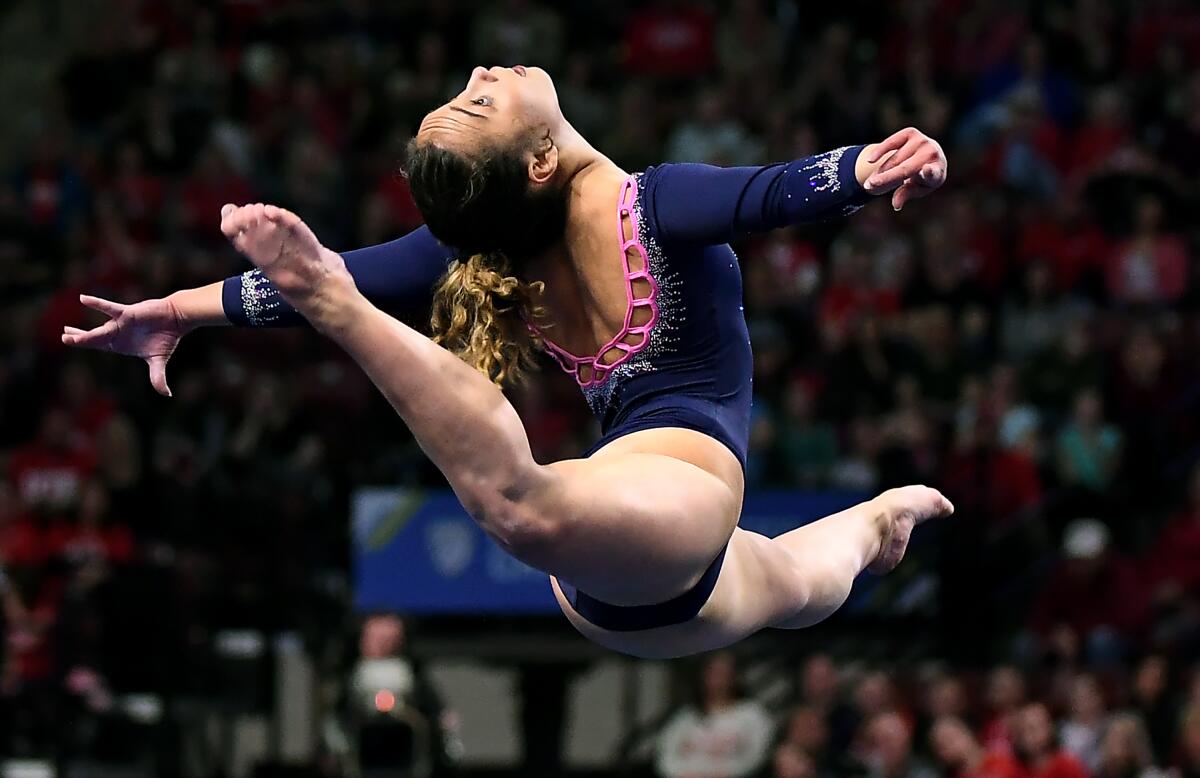
“I don’t want to say this is checkmate,” Newsom said, “but this is a major problem for the NCAA.”
That night, two famous and powerful men — a governor and a basketball-playing king — were having a conversation about college athletes’ rights in a moment made for Hollywood. But Newsom and James were only in the position to posture in front of the cameras because of the decades-long work of lesser-known Californians like Skinner, Schwarz and former UCLA football player turned athletes advocate Ramogi Huma, each of whom refused to stomach NCAA hypocrisy and studied how to best move the chess pieces across the board.
“Everything happened in California,” O’Bannon said. “From L.A. to the Bay, there was a number of people. I don’t think we would be here if it wasn’t for California.”
The “here” that O’Bannon referenced comes Thursday, July 1, when at least a dozen states that followed California into the ring with the NCAA have their NIL laws take effect — and when the NCAA will “suspend amateurism rules” related to NIL as an interim solution to an issue it has been avoiding for more than a decade.
Ed O’Bannon Jr. spearheaded the NCAA’s name, image and likeness movement but says in a first-person piece for the Los Angeles Times that ‘the baton has been passed.’
College athletes, young men and women of all colors, are about to be compensated for their fame for the first time. But this happening now, in the summer of 2021 — or ever — was not written in the stars.
In 2016, after Skinner won her election, one of her aides called Schwarz to hear more about the possibility of a bill. The aide heard Schwarz out for a bit but could not hide her skepticism on paying college athletes: Don’t they get enough already?
Apparently, even here, it still wasn’t the right time.
‘Why doesn’t someone stop this?’
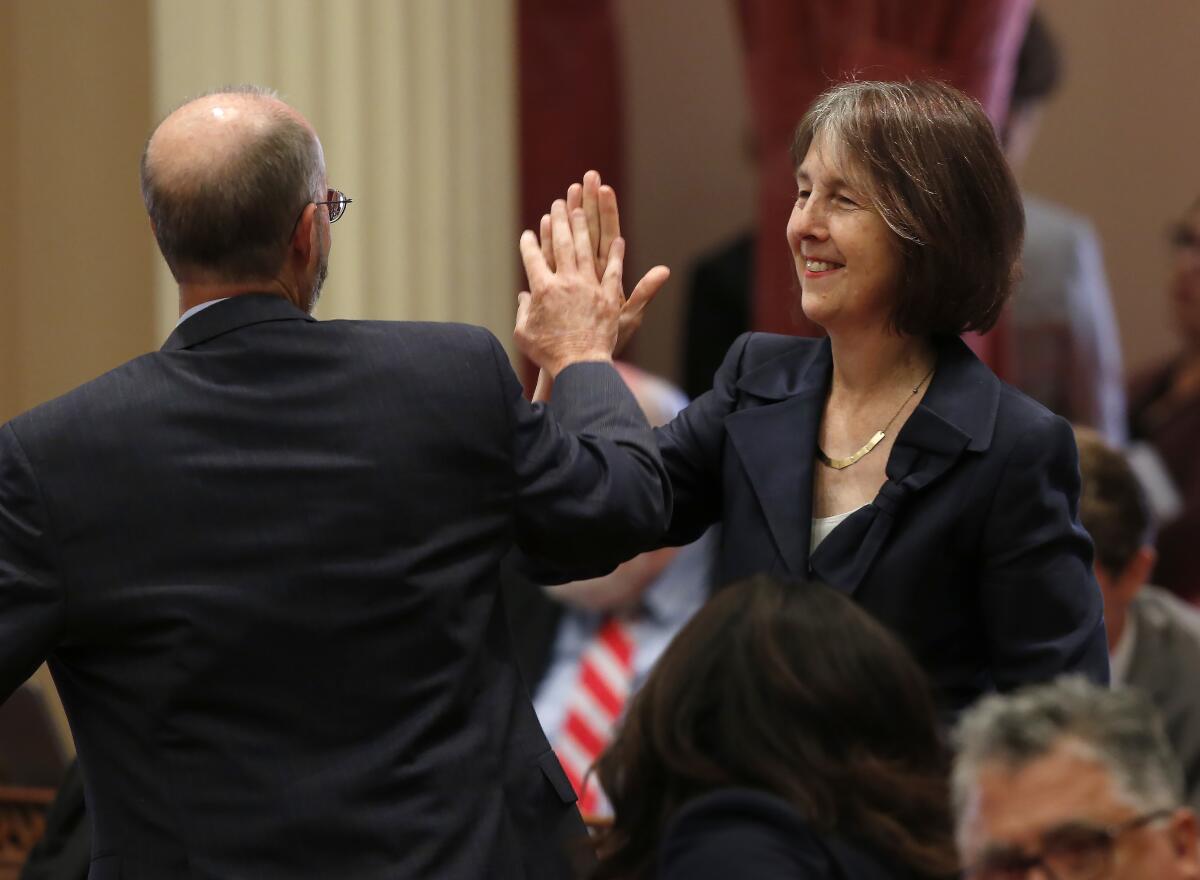
The Californians who turned this place into the incubator for the college athlete rights movement all had to experience their own eureka moments regarding the NCAA system.
Skinner’s indoctrination came as an undergraduate at Cal listening to the lectures of famed sociologist Harry Edwards, who had helped organize the “Black Power” salutes by American athletes John Carlos and Tommie Smith on the medal stand at the 1968 Mexico City Summer Olympics.
Skinner took in Cal football games from outside the stadium on Tightwad Hill because she didn’t have enough money for tickets, but deep down she was a UCLA men’s basketball fan during the Bruins’ glory run.
“My favorite player was Kareem Abdul-Jabbar,” Skinner said, “ and I had it imprinted in my young mind that Black athletes were generating the money in college sports and they were denied that income. I looked at it from a civil rights point of view.”
“Everything happened in California. From L.A. to the Bay, there was a number of people. I don’t think we would be here if it wasn’t for California.”
— Ed O’Bannon
As the president of the L.A.-based National College Players Assn., Huma has become a royal pain to the NCAA, but at his core he will always be the UCLA freshman linebacker who in 1995 saw teammate Donnie Edwards punished by the NCAA because an agent left $150 in groceries outside his door.
“My earliest experiences as a UCLA athlete were watching an athlete be unjustly punished and stand up and speak out against the NCAA,” Huma said.
A few years after he graduated, Huma founded the Collegiate Athletes Coalition, which would evolve into today’s NCPA. While it was hard to gain traction early on, he vowed to The Times in 2002, “We’re not a here-today, gone-tomorrow group.”
Around 2003, Huma‘s and Schwarz’s paths would cross, forming a friendship that would traverse the landscape of college sports reform, from advising on the O’Bannon case to supporting Skinner’s Senate Bill 206 as citizen co-sponsors.
“For me, as a former athlete, I didn’t know if what the NCAA was talking about was true,” Huma said. “But when you have an economist break down the reality of the situation and show there’s a path forward, that gives you a lot of confidence.”
For a decade after getting his Stanford degree in 1989, Schwarz, despite his background in advanced economics, simply enjoyed being a fan of the Cardinal. But his “cognitive dissonance” was lifted when colleague Daniel Rascher asked him in 1999 to help him write a paper about the antitrust implications of amateurism.
UCLA plans to leverage ties to Hollywood and talent agencies to help athletes capitalize on NCAA name, image and likeness rules that go into effect July 1.
“I had never thought about college sports with an economics hat on,” Schwarz said. “By the time we were done with this paper, I was like, ‘Why doesn’t someone stop this?’”
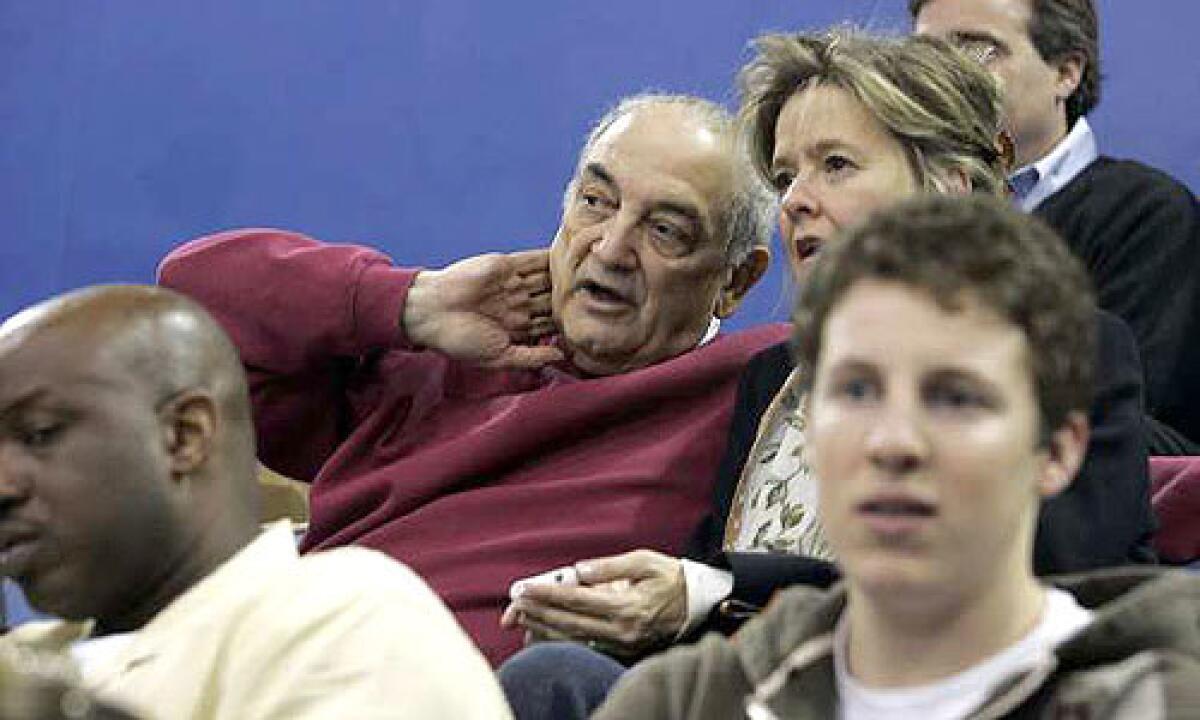
As of 2007, Sonny Vaccaro was ready to try. If anyone understood how the sausage was made in college athletics it was Vaccaro, then an L.A.-based shoe company marketing executive known for signing Michael Jordan at Nike and Kobe Bryant at Adidas.
Vaccaro had become fixated on NIL and began looking for the right former athlete to be the face of a lawsuit. He called O’Bannon, whom he had known as a prep standout in Southern California, and tried to sell him on suing the NCAA over NIL rights.
“I’ve also had that idea,” O’Bannon told Vaccaro.
O’Bannon’s pro career fizzled quickly due to injuries after leading UCLA to the 1995 national championship, but he never became bitter about his lot working as a car salesman in Las Vegas. One day, a friend’s son mentioned that O’Bannon was featured in the “NCAA College Basketball” video game. O’Bannon checked, and it was true. The ’95 Bruins were among the video game’s “classic” teams, there was No. 31, shooting left-handed, just as he did.
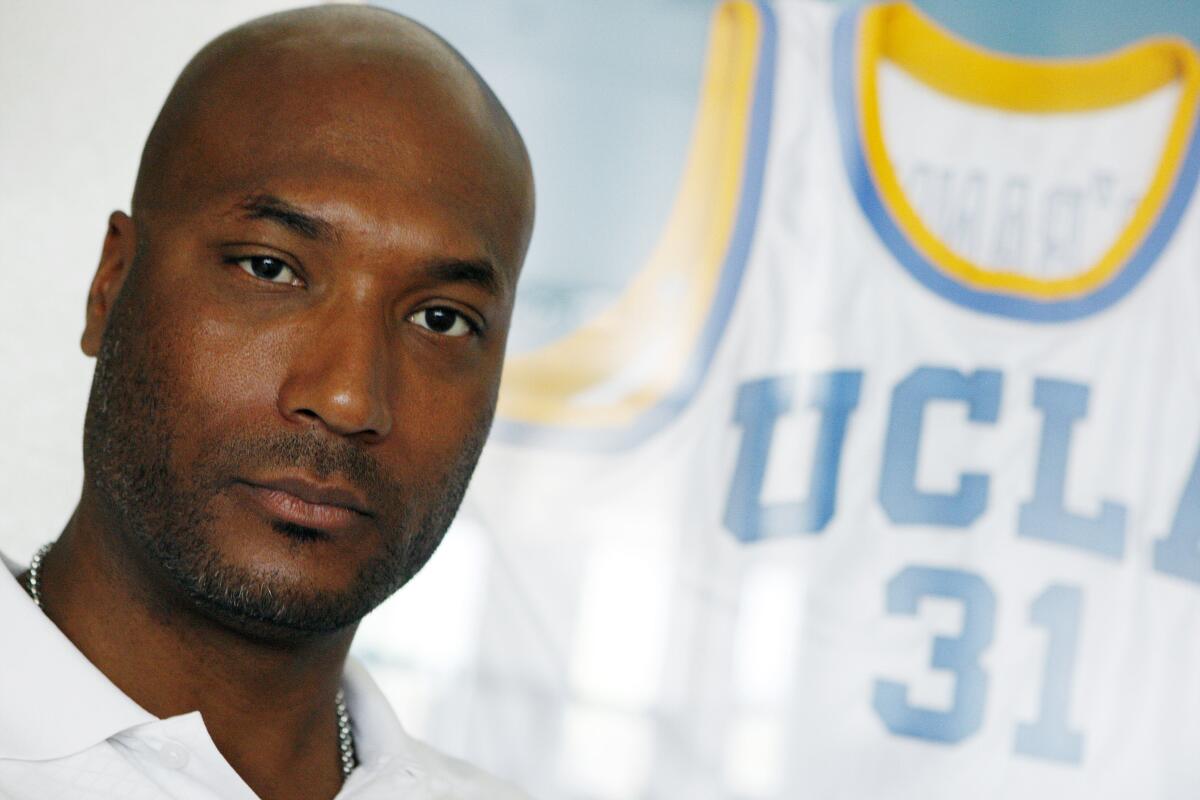
O’Bannon vs. NCAA, filed in 2009, did not go to trial until 2014. But for three weeks in the U.S. District Court in Oakland, the NCAA’s practices were laid bare to the public. Due to an appeal won by the NCAA, the injunction allowed schools to increase athlete compensation but only up to the full cost of attendance.
“In a sense, we won, but the remedy was wholly inadequate,” Huma said. “The 9th Circuit [Court of Appeals] had a chance to do the right thing on NIL and failed to do so. Which is why there was a need for SB 206.”
Skinner had been closely watching the O’Bannon case, which was only natural given her lifelong love of UCLA men’s basketball. She viewed the trial as a tipping point for college athlete pay in the court of public opinion — a key to the potential of passing any future legislation.
‘At first it was very controversial’
Two years of Skinner’s term went without her introducing an NIL bill. But in 2019, with the help of Sen. Steven Bradford (D-Gardena), she broke through the skepticism within her own team and pushed SB 206 forward.
“At first, it was very controversial,” Skinner said. “We had every college in California opposing us.”
NCAA president Mark Emmert was leading the charge against California, threatening that its schools would be ineligible to compete for national championships. That fear had long kept state legislatures at bay, as no politician wanted to be blamed for constituents’ beloved schools falling behind their rivals.
Even as it became clear that she had the support of her fellow legislators, Skinner worried that the governor’s office could be swayed by the pressure from university presidents.
“I don’t think history should forget this. Other states got courage because it was California that was first.”
— Sonny Vaccaro
“I didn’t know if it would pass,” Huma said, “but I knew other states would follow very quickly if it did because this has to do with recruiting advantages. Unfortunately, things like health and safety don’t domino. But when it comes to recruiting, this is America, and other states will have to keep up.”
As soon as SB 206 was introduced, Skinner’s office began hearing from legislators around the country, looking for guidance. As of Thursday, 24 states have passed NIL laws, with at least a dozen going into effect July 1.
“Sen. Skinner led the rebirth of O’Bannon because she advocated for the same principles,” Vaccaro said. “I don’t think history should forget this. Other states got courage because it was California that was first.”
Said Skinner, “In California, we like to get big things done. I always looked to what can we introduce that will really make a profound difference in improving people’s lives, and I think the restoration of an athlete’s name, image and likeness right is going to be a huge improvement.”
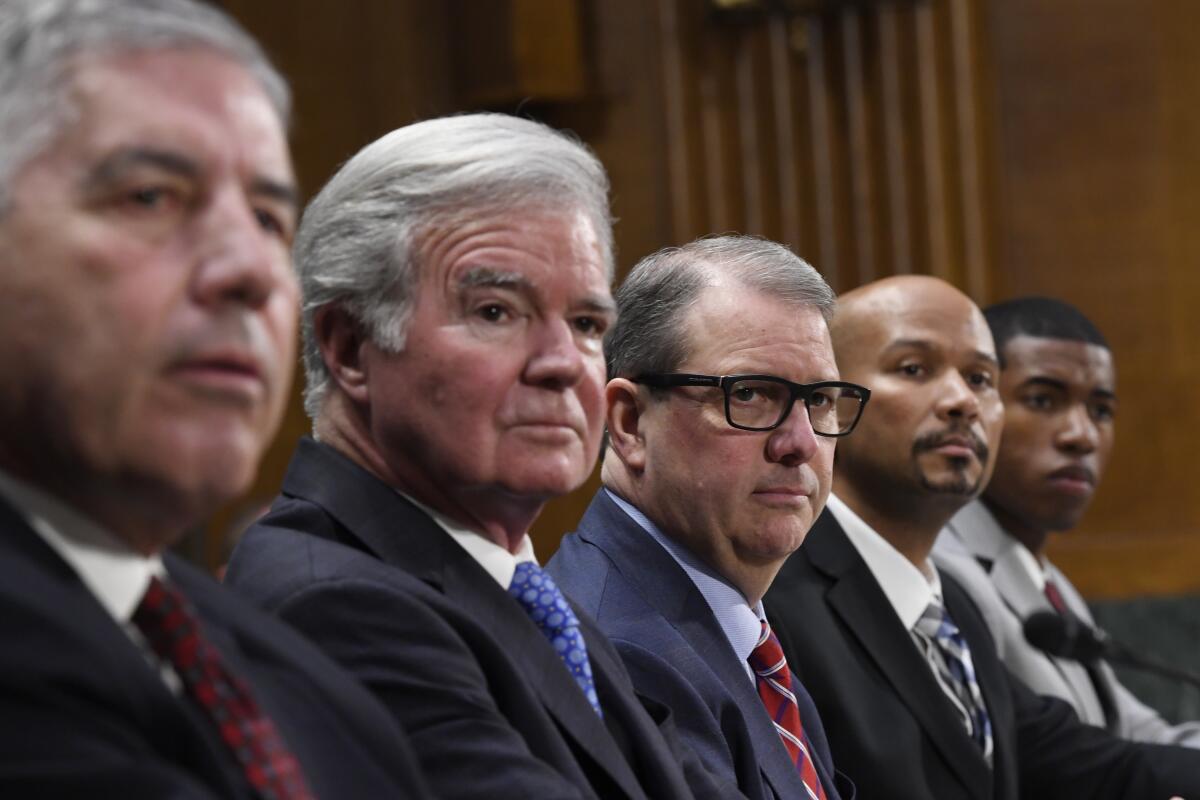
The Supreme Court’s favorable ruling for college athletes in NCAA vs. Alston, which upheld an injunction from the 9th Circuit in Oakland that stated schools could no longer limit compensation related to education and asserted that NCAA amateurism does not deserve antitrust protections, only added to the glee of July 1.
But the work is never done for California’s band of athlete advocates. Huma is continuing to lobby Congress to make sure any federal bill relating to college sports includes broad reforms, not just blanket national guidelines to govern NIL use. Schwarz is a co-founder of the Professional College League (PCL) that should emerge as a direct competitor to NCAA men’s basketball in the coming year, offering salaries to players to go along with full-ride college scholarships.
“I won’t be satisfied until we get enforcement of health and safety standards and give college athletes a real portion of what they generate,” Huma said. “As hard as we fought for NIL, there are more important issues.”
Said Schwarz, “College athletes deserve the same rights as coaches. Until that’s true, they’re not full participants in our economy and therefore aren’t full citizens.”
A few days after the Alston ruling, Huma called Schwarz. They allowed themselves a brief acknowledgement of what had been accomplished.
“It was nice of him to recognize and make me recognize, OK, there is personal satisfaction,” Schwarz said. “Seeing how we catalyzed in some way a whole industry changing … that’s pretty cool.”
More to Read
Go beyond the scoreboard
Get the latest on L.A.'s teams in the daily Sports Report newsletter.
You may occasionally receive promotional content from the Los Angeles Times.

